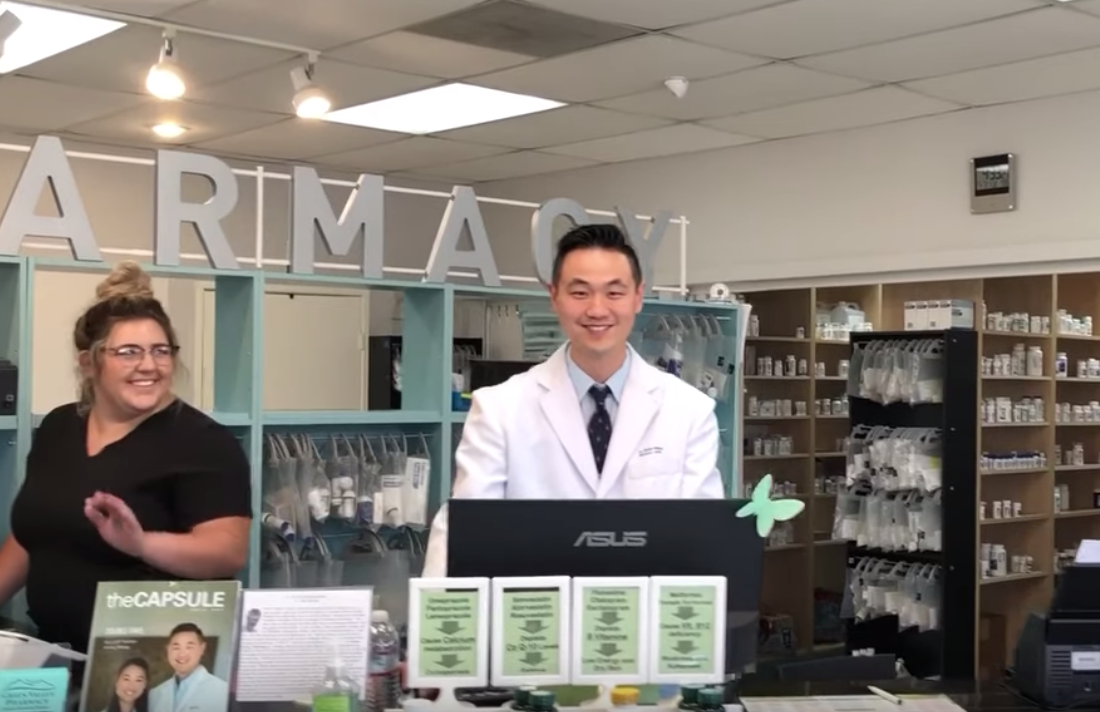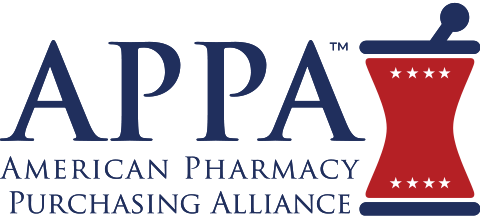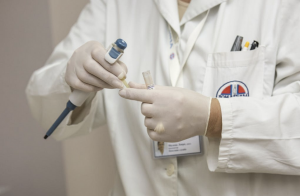 Categoriesnews
Categoriesnews Categoriesnews
Categoriesnews Categoriesnews
CategoriesnewsGreen Valley Pharmacy Interview
Transcript Below
1.) What was your journey like to get where you are today?
The journey was fun for the most part but challenging at times. We recently opened our second location in Rancho Cucamonga, with the first pharmacy in Yucaipa, so things are going very well now, but as I look back, I’m amazed by the twists and turns in my adventure. I graduated from Loma Linda University School of Pharmacy 2010. Thinking that I really wanted to go into residency to specialize in transplant, I interned at the university medical center throughout pharmacy school. During my internship, I realized that I actually enjoy working more in a social environment, which doesn’t necessary happen in a hospital setting. Up to that point, community practice had not crossed my mind, so I went on to select clinical rotations that I felt focused more on interactions with people. I selected the pharmaceutical Industry rotation with Allergan and Oncology Research at the NIH in particular, because I saw myself interacting with many other healthcare professionals on a regular basis. In the end, I did not go into either of those fields for various reasons. While I like to interact with people, it’s difficult for me to engage when I feel the interaction is tainted. I am not saying there is anything immoral or inappropriate, but if my purpose is to promote a certain product or to push a certain agenda I do not believe in, it’s very difficult for me.
There were two separate experiences that pointed me towards community practice and made me want to open an independent pharmacy eventually. The first one happened during my time as an In-patient intern at LLUMC. There was a period of time that the outpatient pharmacy needed coverage, so I was called to help at the outpatient side. Maybe it was a different vibe or just higher energy at the outpatient side, but I really felt at home. And as I mentioned earlier, that’s when I realized I enjoy working with people in a more social, interactive environment. The LLUMC out-patient pharmacy team was great with good personalities, good leadership and overall good energy, which motivated me to go to work. The second experience I had was when I was rotating through Waterman pharmacy, an independent. The owner, Dennis, was my supervisor, and he was an amazing pharmacist/business owner. He modeled how a pharmacist should appropriately interact with his patients and how pharmaceutical care should be provided. I was blown away. It was then that I saw the tremendous value of a good community pharmacist to his patients and providers. It was literally life-changing, and I thought, “Now that’s a career I can get behind and do for the rest of my life!”
2.) In one word, describe yourself.
Motivated. I am motivated because I have plenty of good motivations and motivators. Let me explain. I believe happy people find meaning in what they do and then they do it with a passion. In a way, I have it easy as a healthcare provider to find meaning at work. For me, being a pharmacist really means making a positive impact on the lives of my staff, my patients, and my providers, and there’s plenty of meaning in that, right? As a business owner, being able to provide for my staff and my family, while growing the business to bring more positive interactions, to make more positive impact, now that’s just the cherry on top. I am also motivated to improve our practice and share our experience with the next generation of pharmacists. I am constantly thinking of ways to improve our service and people’s quality of life. If you have my job, you’ll be motivated too!
3.) How do you see the industry changing in three years?
It’s hard to say. In community pharmacy practice, I do see more and more clinical applications and collaboration with local providers, so I think that trend is going to continue. Eventually pharmacies may become the preferred locations for follow-up visits for certain chronic disease states like diabetes and hypertension, but maybe not in three years time. I do believe we need to stay on top of our skills so we don’t get left behind, and for that exact reason, I recently got certified as one of the first 500 Advance Practice Pharmacist (APh) in California. For those who are interested, you can look up the details, but in a nut shell that means you are making a commitment to stay current on the new treatment approach for different diseases and be able to collaborate with other providers and clinics when necessary. For pharmacists to be recognized as a crucial member of the medical system, we need to learn to communicate using the same platform with the same medical/legal language. I think that’s an important step we can take in the next three years
4.) What are your top 3 professional accomplishments?
One is opening our independent practice so that we can provide the quality and the kind of care we want without having to deal with corporations and bureaucracy. Having an independent pharmacy also means that we have a platform to start a movement to improve community pharmacy practice. My second top achievement is getting certified as an APh, which I see as becoming a specialist besides having my general practice in the community pharmacy world.
The third is not really an accomplishment, but something of which I am very proud. I lectured on the topic of independent practice at both Loma Linda University and Western University schools of pharmacy. I also have had pharmacy students at our pharmacy for different school activities in an attempt to inspire the next generation of community pharmacists. Perhaps it is just my own perception, but I feel that the modern pharmacy school curriculum focuses heavily on clinical practice (and I can understand why) but at the same time, discourages community pharmacy practice. Community practice seemed to be viewed as lesser or inferior to any other practice, with Clinical being on the top of the pyramid. I know that community practice is the most common and does not require additional training, but that does not mean mediocracy. Perhaps it’s the lack of passion or enthusiasm people see from many chain pharmacy staff members who are burnt out, or the lack of meaning community pharmacists find in their practice. I believe we can change the culture of pharmacy practice if we can show pharmacy students the true positive impact of a good community practice on patients and the community. Then, more great community pharmacists will graduate and push our profession to new heights.
5.) Who do you look up to?
Professionally, three of my old bosses were incredible pharmacists and successful business owners. William, my previous district manager at Rite Aid is now the owner of multiple pharmacies. He’s one of the most intelligent persons I know and the best district manager to work for. Then there is Dennis, a resourceful visionary. From community practice to specialty pharmacy, he’s involved in a multitude of pharmacy practices. And I also look up to Brandon, a very nice guy who successfully owned and operated six pharmacies at the same time and developed his own pharmacy software, and still managed to have time for his family. Impressive!
6.) Think back and share a story about a personal life experience that defines who you are today. What was the value/lesson?
I’m not sure about a single story but rather a series of life events that helped shape me. But the first crucial event I can remember was when I started to attend the only boarding school in Hong Kong when I was 11, by choice, surprisingly. That period of time made me understand early on that decisions you make along the way will lead you down a certain path and each with its own consequences, heaven or hell. I remembered that I was somewhat of a ringleader among a group of trouble-makers in the dormitories, the only group really. Long story short, police got involved due to some damaged property, and I was under a tremendous amount of stress from my school. Friends, who I thought were solid, all left and disappeared when the situation went south. It was clear to me that I would end up somewhere ruinous if I were to stay the current course. So I made the decision to aim high to do something positive and not to stay angry and cause more suffering (mostly to myself). I learned that by acting and conducting oneself properly in the world, it will lead to an overall positive outcome, and vice versa. And since that point, I’ve been looking for areas that are intuitive to me and finding ways to apply myself effectively to bring some good eventually.
7.) Would you explain a little bit about Green Valley Pharmacy and your role there?
So what is Green Valley Pharmacy? The right question is why. GVP’s mission is straightforward: to improve quality of life for everyone we come into contact with. Being educated at Loma Linda University, our school motto was “To Make Man Whole;” our pharmacy mission echoes that message. We are a group of people who care about the well-being of others. Besides doing what pharmacies traditionally do (like processing prescriptions, filling medications, auto refills…), we care about our patients’ health as a whole and our goal is to help them stay healthy so they are able to do what’s meaningful to them. We believe that each of our patients has a purpose and we are here to help them fulfill theirs with treatments and pharmaceutical care. We listen to their life struggles, let them know they are part of by a community. And we often see people take better care of themselves when they know that someone else also cares about them, that’s a cool phenomenon. We also focus on finding ways to better the lives of our employees’ and our local providers’ throughout our practice.
Besides being a full time pharmacist, my primary objective is to improve the quality of the services we are providing. I often collaborate and discuss how to handle various situations with my staff and how to tackle certain problems that come up. It’s also my job to learn about new services we can implement and to build relationships with the local providers and community.
8.) What’s the biggest challenge facing your profession today?
The three biggest challenges we face today is low insurance reimbursements, insurance processing fees, and their exclusive contracts with the big box stores and their mail order pharmacies. For instance, certain plans will charge their patients higher co-pays when they fill their prescriptions anywhere else but their preferred chain pharmacy. For patients who can afford the higher co-pay and prefer our pharmacy due to our friendly service, they stay with us knowing that they are paying more. But that’s not always feasible for those who don’t have the financial means. Some insurance plans even limit their members to only their own mail order pharmacy. Another challenge we face today is the increased insurance processing fees which vary depending on the insurance company and the drug dispensed. In certain situations, these processing fees are more than the actual insurance reimbursement amount.
9.) What advice would you share with pharmacists looking to start their own pharmacy?
As a pharmacist, you’ve got to have heart! People will see right through you if your motivation is not genuine. Your patients and your staff won’t feel empowered if you don’t believe in why you do what you do. In terms of the business aspect, independent pharmacies tend to do better when they can find a niche and are able to fill a need. In other words, you will need to identify a service that is meaningful to the local community you are serving, either to perfect what is existing or to introduce and deliver a brand new service.
10.) How can our viewers/readers reach you?
All of our information is available on our website www.greenvalleyrx.com. Additionally, guests can always visit us at our Yucaipa location at the city center across from Vons or our Rancho Cucamonga location near Victoria Gardens.





